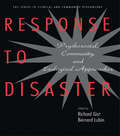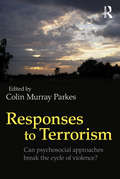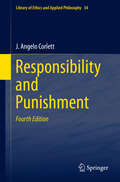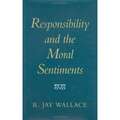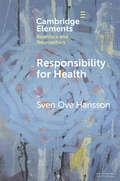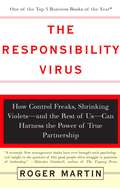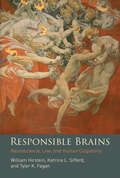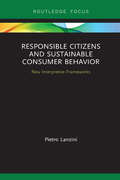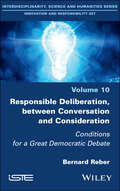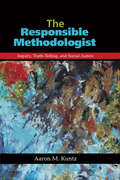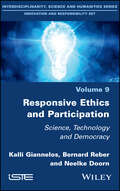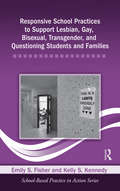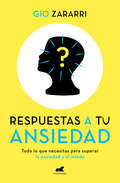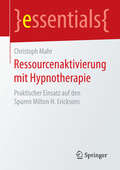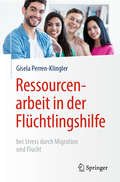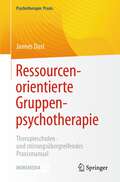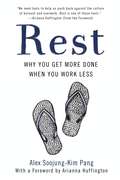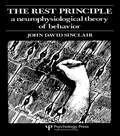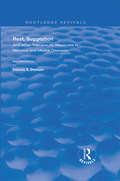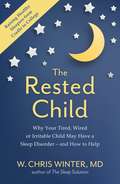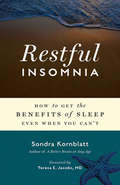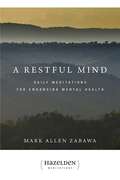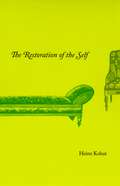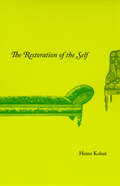- Table View
- List View
Response to Disaster: Psychosocial, Community, and Ecological Approaches
by Bernard Lubin Richard GistFirst published in 2000. Routledge is an imprint of Taylor & Francis, an informa company.
Responses to Terrorism: Can psychosocial approaches break the cycle of violence?
by Colin Murray ParkesWhy do responses to terrorist attacks often perpetuate cycles of deadly violence? Can an understanding of the psychology of these cycles help us to break them? Drawing on clinical experience of the care of people and communities affected by violence and disasters and on advances in cognitive and dynamic psychology, attachment theory, group psychology and thanatology, this ground-breaking work by a prominent and varied array of contributors casts light on the causes of terrorism, the reasons why responses to deadly attacks easily give rise to or maintain cycles of violence and some ways to prevent and interrupt these cycles. Using the violence in Northern Ireland and Rwanda as case studies throughout, Part 1, The Context of Terrorism, looks at the psychological and social influences behind extremism, terrorism and conflict. Part 2, Reponses to a Terrorist Attack, examines the responses that can feed a cycle of violence and assesses a range of approaches for their success in ending violence. Part 3, Breaking the Cycle, looks in depth at specific environments, influences and changes that can affect how violence can be prevented or mitigated, including the role of schools and the media and an examination of how peace processes were carried out in Northern Ireland and Rwanda. The book works to demonstrate how psychological responses to a terror attack can trigger unstable emotional responses and override judgement and to identify the five key points in a cycle of violence where change, for better or for worse, is possible. Ideal for psychiatrists, thanatologists, palliative care and bereavement staff, politicians and journalists as well as anyone with an interest in terrorism and its causes, this is a thought-provoking and accessible work on a highly topical subject.
Responsibility and Punishment
by J. Angelo CorlettThis volume provides discussions of both the concept of responsibility and of punishment, and of both individual and collective responsibility. It provides in-depth Socratic and Kantian bases for a new version of retributivism, and defends that version against the main criticisms that have been raised against retributivism in general. It includes chapters on criminal recidivism and capital punishment, as well as one on forgiveness, apology and punishment that is congruent with the basic precepts of the new retributivism defended therein. Finally, chapters on corporate responsibility and punishment are included, with a closing chapter on holding the U. S. accountable for its most recent invasion and occupation of Iraq. The book is well-focused but also presents the widest ranging set of topics of any book of its kind as it demonstrates how the concepts of responsibility and punishment apply to some of the most important problems of our time. "This is one of the best books on punishment, and the Fourth Edition continues its tradition of excellence. The book connects punishment importantly to moral responsibility and desert, and it is comprehensive in its scope, both addressing abstract, theoretical issues and applied issues as well. The topics treated include collective responsibility, apology, forgiveness, capital punishment, and war crimes. Highly recommended. "--John Martin Fischer, Distinguished Professor of Philosophy, University of California, Riverside.
Responsibility and the Moral Sentiments
by R. Jay WallaceWe need to understand what we are doing when we hold people morally responsible, a stance that Wallace connects with a central class of moral sentiments, those of resentment, indignation and guilt. To hold someone responsible, he argues, is to be subject to these reactive emotions in one's dealings with that person. Developing this theme, he offers an interpretation of the reactive emotions and traces their role in our practices of blame and moral sanction.
Responsibility for Health (Elements in Bioethics and Neuroethics)
by Sven Ove HanssonThis Element offers a broad perspective on responsibility for health. This includes responsibilities in the prevention of disease and accidents, and in the creation of healthcare for all. The professional responsibilities of physicians and nurses are explored, and so are the responsibilities that we all have for our own health. Many of the central problems in healthcare ethics are discussed from a responsibility perspective, for instance paternalism, informed consent, evidence-based medicine, alternative medicine, and the use of artificial intelligence in healthcare. In order to perform this analysis, conceptual tools for responsibility analysis are provided, such as the distinction between blame responsibility and task responsibility and various notions of causality that are relevant for our understanding of responsibility.
The Responsibility Virus
by Roger L. MartinA Triumph. Few management books have ever brought such psychological insight to the question of why good people often struggle in positions of leadership. -Malcolm Gladwell, author of "The Tipping Point"
Responsible Brains: Neuroscience, Law, and Human Culpability
by William Hirstein Katrina L. Sifferd Tyler K. FaganAn examination of the relationship between the brain and culpability that offers a comprehensive neuroscientific theory of human responsibility. When we praise, blame, punish, or reward people for their actions, we are holding them responsible for what they have done. Common sense tells us that what makes human beings responsible has to do with their minds and, in particular, the relationship between their minds and their actions. Yet the empirical connection is not necessarily obvious. The “guilty mind” is a core concept of criminal law, but if a defendant on trial for murder were found to have serious brain damage, which brain parts or processes would have to be damaged for him to be considered not responsible, or less responsible, for the crime? What mental illnesses would justify legal pleas of insanity? In Responsible Brains, philosophers William Hirstein, Katrina Sifferd, and Tyler Fagan examine recent developments in neuroscience that point to neural mechanisms of responsibility. Drawing on this research, they argue that evidence from neuroscience and cognitive science can illuminate and inform the nature of responsibility and agency. They go on to offer a novel and comprehensive neuroscientific theory of human responsibility. The authors' core hypothesis is that responsibility is grounded in the brain's prefrontal executive processes, which enable us to make plans, shift attention, inhibit actions, and more. The authors develop the executive theory of responsibility and discuss its implications for criminal law. Their theory neatly bridges the folk-psychological concepts of the law and neuroscientific findings.
Responsible Citizens and Sustainable Consumer Behavior: New Interpretive Frameworks (Routledge-SCORAI Studies in Sustainable Consumption)
by Pietro LanziniThere is broad consensus on the need to shift to a new paradigm of lifestyles and economic development, given the un-sustainability of current patterns. Given this, research on consumer behavior is to play a crucial role in shedding light on the motives underpinning the adoption of responsible behaviors. Stemming from a thorough discussion of existing approaches, this book argues that the perspective of analysis has to be modified. First, acknowledging that a profile of the responsible consumer does not exist since all of us can be more or less sustainable and environment-friendly: the sustainability of an individual should not be considered as given, being something dynamic that changes according to both subjective and contextual factors. Moreover, the book hypothesises that integrating dimensions and perspectives that have been so far overlooked by mainstream research will help deconstruct responsible behaviors adopting a flexible and holistic approach. Relevant policy implications are discussed, and empirical research on responsible behaviors is illustrated. This book will be of great interest to students and scholars of consumer behavior, sustainable consumption, environmental psychology and environmental studies in general.
Responsible Deliberation, between Conversation and Consideration: Conditions for a Great Democratic Debate
by Bernard ReberCommunication is a crucial issue in our complex societies tinted by distrust. It is the core of democratic life and almost all human and social actions. Therefore it is essential for communication to be responsible. But responsible communication cannot only be conceived as a deontological issue, framed by ethical compliance requirements or good practices promotion. It should be considered with all the virtualities of communication, from conversation to consideration, going through narrative, interpretation and argumentation. Indeed each of these communicational capacities has its properties, assets, complementarities and limitations. They constitute different ways to be responsive. This book offers a contribution to the debate of Theory of Deliberative Theory (TDD), reexamined here within its different inspiration sources, notably the opposition between communicational turn and system, the fact of moral pluralism and the public reason.
The Responsible Methodologist: Inquiry, Truth-Telling, and Social Justice
by Aaron M KuntzWhat does it mean to be a responsible methodologist? Certainly it is more than being a research middle-manager who ensures that the tools used in a thesis or dissertation are of the right gauge. In The Responsible Methodologist, leading education scholar Aaron Kuntz uses the latest movements in social theory to challenge qualitative researchers to reconceptualize their work away from the technocratic toward an intervention, an ethical disruption of the norm, an activist stance toward progressive social change. Inviting creativity and vision, he insists that the responsible methodologist become a force leading the discourse toward social justice. His book-challenges the technocratic role given to qualitative methodologists in university settings;-urges them to become a force for change through Foucault's parrhesia, risky truth-telling;-includes research projects that have incorporated this vision.
Responsive Ethics and Participation: Science, Technology and Democracy
by Kalli Giannelos Bernard Reber Neelke DoornTaking stock of the overall confused picture that research and innovation (R&I) literature and practices offer with regard to citizen and stakeholder participation, this book provides a methodical conceptual and an empirical analysis to determine the connection between ethics and participation. Strong theoretical pillars in the fields of ethics, politics and responsible research and innovation (RRI) form the backbone of this critical approach to participation, which considers new approaches to democratic participation. Taking into account a number of participatory processes, Responsive Ethics and Participation establishes a new methodology to differentiate, classify and understand the added value of the participation of citizens and stakeholders in R&I.Participation could be considered the epitome of innovation ethics. However, its multidimensionality, its ethical and theoretical grounds and the nature of the involvement and related outcomes must be clarified at the outset, in order to reach active forms of participation. Ethical participation is required for reliable developments in science and technology, which is what this book ultimately demonstrates.
Responsive School Practices to Support Lesbian, Gay, Bisexual, Transgender, and Questioning Students and Families (School-Based Practice in Action)
by Emily S. Fisher Kelly S. KennedyThe needs and rights of lesbian, gay, bisexual, transgender, and questioning (LGBTQ) students and families are often ignored, generally misunderstood, and only rarely given priority by the school system. This book provides a practical and useful guide for school-based mental health professionals to support students, families, teachers, and administrators in the development of a safe, inclusive school environment for all LGBTQ students and families. It begins with an overview of the unique issues and challenges faced by LGBTQ students and families, including a discussion of sexuality and gender identity development within the interconnected contexts of home, school, and community. Practical steps are given for creating an inclusive school environment; implementing prevention and intervention techniques to address discrimination, bullying, and violence; and organizing effective counseling programs for LGBTQ students. These school-based efforts are then extended to working with families and communities to reinforce steps taken in the school context. An accompanying CD includes numerous handouts, sample letters, and other resources to assist the school-based mental health professional in implementing responsive and affirmative practices for LGBTQ students and families.
Respuestas a tu ansiedad: Todo lo que necesitas para superar la ansiedad y el miedo
by Gio Zararri¿Sientes que las preocupaciones dominan tu vida? ¿No consigues entender qué te ocurre y todo ello aumenta tus miedos y tu ansiedad? Sé por lo que estás pasando, y también sé que si no respondes con calma a tus miedos, nada cambiará. En este libro encontrarás la respuesta a todas esas preocupaciones que complican tu vida o la de un ser querido. Te ayudará a comprender lo que estás sintiendo y cuál es la realidad de tu ansiedad, una verdad con la que entenderás que no tienes nada que temer, sino mucho que aprender. Este libro puede convertirse en tu mejor aliado contra la ansiedad, la mejor herramienta tanto si la sufres tú como si deseas ayudar a un hijo, a tu pareja o a un familiar o amigo que padece este trastorno. Gracias a Respuestas a tu ansiedad, pronto podrás responder, con calma y objetividad, a las muchas preocupaciones que genera este trastorno y que te llevan a sentir verdadero pánico. No esperes más para cambiar tu vida o la de un ser querido. No existe mejor momento para conseguirlo que ahora. Utiliza estas respuestas como el mejor remedio para eliminar esos miedos irracionales y sin sentido que acompañan tu vida.
Ressourcenaktivierung mit Hypnotherapie: Praktischer Einsatz auf den Spuren Milton H. Ericksons (essentials)
by Christoph MahrChristoph Mahr vermittelt einen umfassenden Überblick über Ressourcen und deren Bedeutung für die Psychotherapie. Er erläutert, wie wichtig eine ressourcenorientierte Grundhaltung insbesondere bei hypnotherapeutischen Prozessen ist, welche Ressourcen zur Verfügung stehen und wie sich diese im Rahmen der Therapie nutzen lassen. Das Essential enthält einen theoretischen Teil, in welchem unter anderem die moderne Hypnose mit ihrer Leitfigur Milton H. Erickson und die von ihm abgeleiteten Methoden vorgestellt werden, sowie einen praktischen Teil mit strukturierten und detailliert beschriebenen Handlungsanleitungen zur Aktivierung von Ressourcen.
Ressourcenarbeit in der Flüchtlingshilfe: bei Stress durch Migration und Flucht
by Gisela Perren-KlinglerErzwungene Migration und Flucht bedeuten oft eine große Verunsicherung oder sogar Traumatisierung der Betroffenen. Nach Ankunft im Gastland gilt es, die disruptiven Erfahrungen zu bewältigen, um eine gute Integration und möglichst selbständiges Leben aufbauen oder nach Rückkehr ins Heimatland an das frühere Leben anknüpfen zu können. Die hier dargestellten Vorgehensweisen basieren auf der Grundannahme, dass Menschen über ausreichende Ressourcen verfügen, um auch nach potenziell traumatischen Erlebnissen gut weiterzuleben und zu wachsen; es gilt, diese spezifischen Ressourcen wiederzuentdecken, zu nutzen und zu stärken. Das Buch bietet einfach aufbereitetes Grundlagenwissen rund um die Themen exzessiver Stress und seine Konsequenzen, Trauma und Verlusterlebnisse. Zahlreiche einfache Strategien und Techniken werden aufgezeigt, wie betroffene Menschen unter Anleitung Ressourcen aktivieren können, um diese Herausforderungen zu meistern. Das Buch richtet sich an alle Berufsgruppen, die im psychosozialen Dienst in der Flüchtlingshilfe aktiv sind. Es kann sogar dazu benützt werden, um mit Flüchtlingen zusammen eine Ausbildung als Mediatoren und Mediatorinnen für ihre Landsleute in die Wege zu leiten.
Ressourcenorientierte Gruppenpsychotherapie: Therapieschulen- und störungsübergreifendes Praxismanual (Psychotherapie: Praxis)
by Jannes DustDieses Buch soll Ihnen im Rahmen einer Kompetenzorientierung alles an die Hand geben, was Sie für die Leitung einer ressourcenorientierten Gruppenpsychotherapie in der ambulanten und/oder stationären Behandlung brauchen. Anhand von konkreten Praxisanleitungen, zahlreichen Beispielen und übersichtlichem Arbeitsmaterial unterstützt Sie dieses Manual von der Vorbereitung über die Durchführung bis zur letzten Gruppensitzung. Es soll Ihnen Unsicherheiten nehmen, Sie auf schwierige Situationen in der Gruppe vorbereiten und Sie in der Findung Ihrer therapeutischen Haltung stärken. Aus dem Inhalt: Selbstheilungskräfte – Selbstfürsorge – Versorgung von Bedürfnissen – Ressourcenaktivierung – Selbstwertgefühl und Selbstwirksamkeit. Über den Autor:Jannes Dust, M.Sc. Psychologe, Psychologischer Psychotherapeut. Erfahrung in unterschiedlichen psychiatrischen Einrichtungen, mit Schwerpunkt Gruppenpsychotherapie. Niedergelassen in eigener Praxis in Bonn. Arbeitsschwerpunkte: Ressourcenorientierte Therapie, Gruppenpsychotherapie, Verhaltenstherapie, Strukturpathologie, Abhängigkeitserkrankungen und außergewöhnliche Erfahrungen.
Rest: Why You Get More Done When You Work Less
by Alex Soojung-Kim Pang"Rest is such a valuable book. If work is our national religion, Pang is the philosopher reintegrating our bifurcated selves."---Arianna Huffington, New York Times Book Review Overwork is the new normal. Rest is something to do when the important things are done—but they are never done. Looking at different forms of rest, from sleep to vacation, Silicon Valley futurist and business consultant Alex Soojung-Kim Pang dispels the myth that the harder we work the better the outcome. He combines rigorous scientific research with a rich array of examples of writers, painters, and thinkers—from Darwin to Stephen King—to challenge our tendency to see work and relaxation as antithetical. "Deliberate rest," as Pang calls it, is the true key to productivity, and will give us more energy, sharper ideas, and a better life. Rest offers a roadmap to rediscovering the importance of rest in our lives, and a convincing argument that we need to relax more if we actually want to get more done.
The Rest Principle: A Neurophysiological Theory of Behavior
by J. D. Sinclair John David SinclairFirst published in 1982. Routledge is an imprint of Taylor & Francis, an informa company.
Rest, Suggestion, and Other Therapeutic Measures in Nervous and Mental Diseases (Routledge Revivals)
by Francis Xavier DercumFirst published in 1919. Emphasis has been laid upon simple physiologic methods of treatment; such as rest, feeding and psychotherapy. In order that the principles underlying the application of these methods should be clearly appreciated, the author has unfolded, in as systematic a manner as possible, the problems presented by the exercise of function, rest and the various fatigue states. He has adopted a purely clinical interpretation of the neuroses, a clear comprehension of which is an indispensable preliminary to intelligent and successful treatment. In embracing physiologic methods, medicines and psychotherapy in one volume, the author has endeavoured to present a comprehensive discussion of the treatment of nervous and metnal disorders; especially of those which are functional in character.
The Rested Child: Why Your Tired, Wired, or Irritable Child May Have a Sleep Disorder - and How to Help
by W. Christopher WinterSleep disorders in children are on the rise. Experts have pronounced sleeplessness a 'hidden health crisis' for young people, with 10 percent of children presenting with diagnosable sleep disorders - but well over half are misdiagnosed. Every year, tens of thousands of children are treated for diseases such as diabetes, learning disorders, or chronic pain, when the real root cause of their ailment may actually be a sleep disorder for which they're not being treated.In this ground-breaking guide, neurologist and sleep expert Dr Chris Winter identifies the signs and symptoms of the most common sleep disorders affecting children today, and he empowers parents and caregivers to understand the steps necessary to address and treat their children's sleep problems. From common issues such as too much screen time and night terrors, to narcolepsy, sleep apnoea, and more, The Rested Child leaves no stone unturned. This book pulls back the curtain on the relationship between poor sleep quality and paediatric epidemics related to psychiatric health, rising obesity, ADD/ADHD, pain disorders, and other undiagnosed disorders of sleepiness and fatigue.Finally parents have a resource to help them uncover the root of their children's problems, and, more important, to provide the answers on how to help.
Restful insomnia: How to Get the Benefits of Sleep Even When You Can't (Conari Wellness)
by Sondra KornblattInsomnia has meant nights of frustration-until now. A new program, Restful Insomnia, helps insomniacs mimic the benefits of sleep so they can greet the mornings refreshed. If you are among the 70 million sleep-deprived Americans who do battle every night, take heart! This book will show you how to use your waking night hours to quiet your mind, replenish your creativity, and relax deeply. You'll come to accept your insomnia and discover how to derive enough of the benefits of sleep to be able to get up in the morning feeling refreshed.
A Restful Mind: Daily Meditations for Enhancing Mental Health
by Mark Allen ZabawaThe only meditation book designed to provide inspiration, support, and focus for those living with mental health problems.With A Restful Mind, Mark Allen Zabawa offers the first book designed to provide inspiration and support specifically for people living with mental health problems. A year of daily readings address the common life issues that arise for those with mental health problems and help those dealing with a disorder start or end each day more at peace with themselves and the world. By focusing thinking on positive, health-enhancing messages and presenting the kind of empathetic support that fellow contenders of emotional distress can offer, these meditations help you achieve the mental rest and self-acceptance needed for a balanced, healthy mind and peaceful life.
The Restoration of the Self
by Heinz KohutIn his foundational work The Restoration of the Self, noted psychoanalyst Heinz Kohut boldly challenges what he called "the limits of classical analytic theory" and the Freudian orthodoxy. Here Kohut proposes a "psychology of the self" as a theory in its own right- one that can stand beside the teachings of Freud and Jung. Using clinical data, Kohut explores issues such as the role of narcissism in personality, when a patient can be considered cured, and the oversimplifications and social biases that unduly influenced Freudian thought. This volume puts forth some of Kohut's most influential ideas on achieving emotional health through a balanced, creative, and joyful sense of self. "Kohut speaks clearly from his identity as a psychoanalyst-healer, showing that he is more of a psychoanalyst than most, and yet calling for major theoretical revisions including a redefinition of the essence of psychoanalysis."- American Journal of Psychotherapy
The Restoration of the Self
by Heinz KohutIn his foundational work The Restoration of the Self, noted psychoanalyst Heinz Kohut boldly challenges what he called “the limits of classical analytic theory” and the Freudian orthodoxy. Here Kohut proposes a “psychology of the self” as a theory in its own right—one that can stand beside the teachings of Freud and Jung.Using clinical data, Kohut explores issues such as the role of narcissism in personality, when a patient can be considered cured, and the oversimplifications and social biases that unduly influenced Freudian thought. This volume puts forth some of Kohut’s most influential ideas on achieving emotional health through a balanced, creative, and joyful sense of self."Kohut speaks clearly from his identity as a psychoanalyst-healer, showing that he is more of a psychoanalyst than most, and yet calling for major theoretical revisions including a redefinition of the essence of psychoanalysis.”—American Journal of Psychotherapy
Restoration Therapy: Understanding and Guiding Healing in Marriage and Family Therapy
by Terry D. Hargrave Franz PfitzerHow can a therapist help his or her clients and ensure that they continue to maintain the insights and motivations learned during therapy in everyday life, beyond termination? Restoration Therapy is a professional resource that introduces the reader to the essential elements of its namesake, and from there guides clinicians to a systemic understanding of how certain forces lead to destructive cycles in relationships, which perpetuate more and more dysfunction among members. Clients and therapists both will understand issues more clearly, experience the impacts that emotion can have on insight, and practice the process so more loving and trustworthy relationships can take hold in the intergenerational family.
